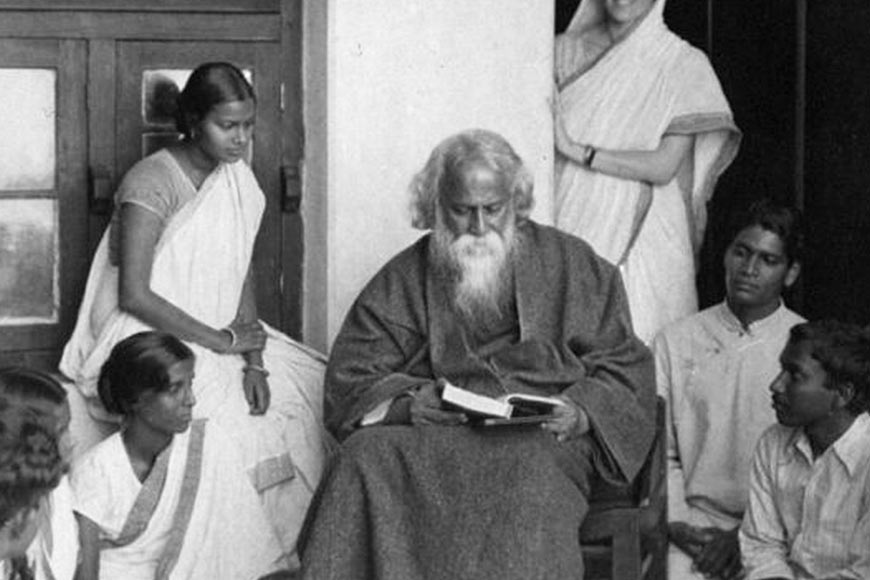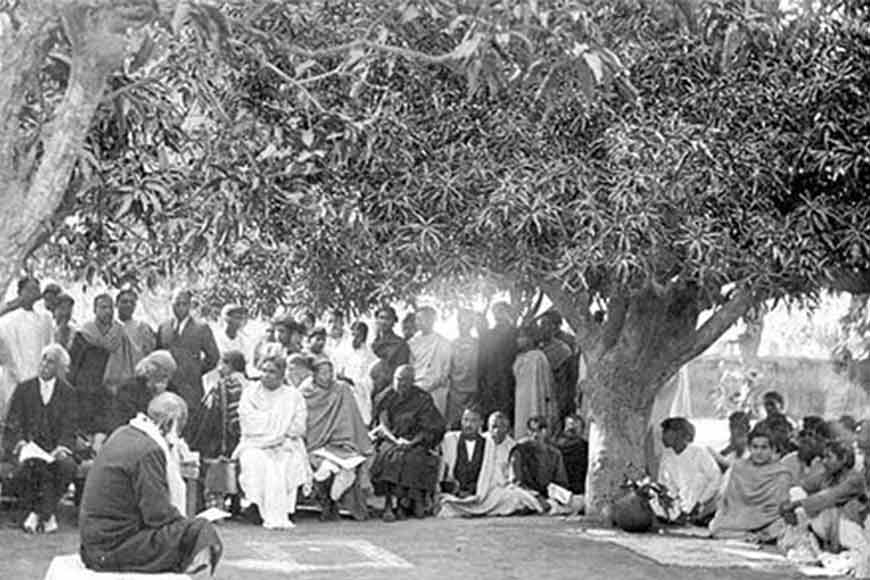Tagore's profound spiritualism

Rabindranath Tagore always believed the source and the cause of all of philosophy and science, be it in the material or spiritual world, are one and the same. Schopenhauer has effectively discussed this fact in his book Principle of Sufficient Reason. Though he has identified Will and Idea as the two drivers of this world, he has put Will above Idea as the main motivating factor. Swetaswatara Upanishad mentions in this context:
The Creator is not shackled by the relation between cause and effect – His presence is beyond this effect. His wisdom, force and play emanate quite naturally. Through this word ‘naturally’ is conveyed the notion of spontaneity, which is above the cause and effect. Therefore, it is not the material thing but the awareness of the material world that must be absorbed by all of us.
 Visva Bharati
Visva Bharati
No one in the world is His master, nor has anybody any control over Him. There is no sign by which He can be inferred. His is the cause of all, and the ruler of individual souls. He has no parent, nor is their anyone who is His lord. He is not endowed with a master or a driver – He himself is the mover of His chariot. He has no father, no mother – He himself is the superior soul, moulded into one who has no gender, neither of the father, nor the mother. He who has spread himself all over in this universe is the one who is at the core of our spiritual enlightenment. On the one hand, he is the Emperor of this Universe and on the other, also the Lord of our soul. He who will comprehend him fully through scholarship and dedication would acquire the eventual salvation.
Also read : Tagore and his boundless curiosity
Though Tagore’s multi-dimensional talent, profound spiritualism and the enormity of his far-sighted imagination are beyond comprehension by mere mortals, deep inside he was like a child, full of simplicity and straightforwardness and that is why he had thought of education to grow from the very beginning like a flowering tree. On his seventieth birthday the poet writes:
At the conclusion of my long journey around the circle of my life, when the end is near, I have come to understand one basic fact and that is I am just a poet… I am not a learned theorist nor a leader of ideas --- some have called me a wise man, some have put me on the pedestal of a school master. But from the very childhood I had been more attracted towards games and had avoided school masters --- the post of a school master does not suit me. At this ripe age I feel it is futile to claim greatness or adjudge myself as superior or inferior to others. I do not care for recognition from people who have been busy devising various methods of evaluation. I do not want to strive for small crumbs of rewards and I wish that my mind does not get cluttered by hankering of various yardsticks of success.
The Tagorean model of education in itself is an exemplification of what may be considered a timeless ideal that has not lost its relevance in this fast-moving world.
(Inspired by A random walk in Santiniketan Ashram by Sushanta Dattagupta, and other related publications on Santiniketan.)










